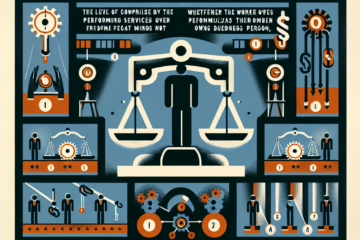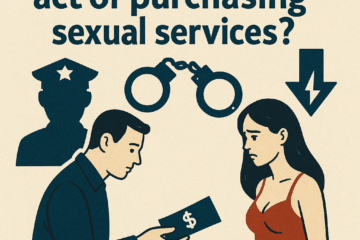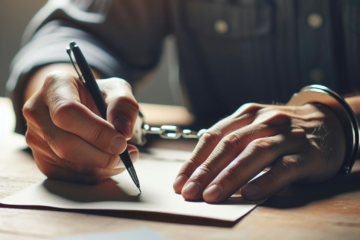The bail system in British Columbia (BC) plays a crucial role in the criminal justice framework, ensuring that individuals accused of crimes are treated fairly while balancing public safety concerns. Understanding how bail operates in BC can help demystify the process for those directly involved and the general public. This article provides a comprehensive guide to the bail system in BC, detailing its processes, key factors influencing decisions, and what one can expect following a bail hearing.
Table of contents
Overview of the Bail System in British Columbia
The bail system in British Columbia is designed to allow individuals accused of a crime to remain free while awaiting trial, provided they do not pose a significant risk to society or themselves. The principle underpinning the bail system is the presumption of innocence until proven guilty, ensuring that individuals are not unduly punished before their day in court. In BC, the bail process is governed by the Criminal Code of Canada, which outlines the conditions and procedures for granting bail. This system aims to balance the rights of the accused with the need to protect public safety and ensure the accused appear in court.

In BC, bail hearings typically occur shortly after an individual’s arrest, often within 24 hours, to decide whether the accused should be released from custody. The hearing is conducted in front of a judge or a justice of the peace, who assesses the circumstances of the case and determines if bail is appropriate. During the hearing, the Crown prosecutor presents arguments for or against the release, while the defense lawyer advocates for the accused’s release on reasonable terms. The judge or justice then makes a decision based on the evidence and arguments presented.
The bail system also provides for conditions that may be imposed on the accused if they are granted bail. These conditions are designed to ensure compliance with the law, minimize risks to the community, and guarantee the accused’s appearance in court. Conditions can include restrictions on travel, requirements to report to a bail supervisor, or prohibitions on contacting certain individuals. Failure to comply with these conditions can result in the revocation of bail and re-arrest.
Overall, the bail system in BC serves as a critical component of the justice system, balancing the rights of the accused with the need to maintain public safety. Understanding the intricacies of this system can help individuals navigate the legal process more effectively and ensure their rights are protected.
Key Steps in the Bail Application Process
The bail application process in British Columbia begins with the arrest of an individual suspected of committing a crime. Once in custody, the accused must be brought before a judge or justice promptly, typically within 24 hours, for a bail hearing. This initial step is crucial, as it sets the stage for the subsequent proceedings and determines whether the accused will be held in custody or released pending trial.
During the bail hearing, the Crown prosecutor presents the case against granting bail, highlighting any potential risks the accused might pose if released. The defense lawyer, on the other hand, argues for the accused’s release, emphasizing factors that support their client’s reliability and adherence to bail conditions. Both parties may present evidence, such as character references or employment records, to bolster their arguments. The judge or justice evaluates the information and arguments to make an informed decision regarding bail.
If bail is granted, the judge or justice will set conditions that the accused must follow while out on bail. These conditions vary depending on the specifics of the case and the perceived risk factors, but they generally aim to ensure public safety and the accused’s compliance with the law. Common conditions include reporting to a bail supervisor, adhering to a curfew, or avoiding certain individuals or locations. The accused must understand and agree to these conditions to secure their release.
In cases where bail is denied, the accused remains in custody until their trial date or until they can appeal the decision. The denial of bail typically occurs when the judge or justice believes the accused poses a flight risk, a threat to public safety, or is likely to interfere with the judicial process. Understanding the steps in the bail application process is vital for the accused and their legal representation, as it informs their approach and preparation for the hearing.
Factors Influencing Bail Decisions in BC
Several factors influence bail decisions in British Columbia, as judges or justices strive to balance the rights of the accused with public safety concerns. One of the primary considerations is the nature and seriousness of the alleged offense. Violent crimes or offenses involving significant harm to individuals or property are more likely to result in bail being denied or accompanied by stringent conditions. The court assesses the potential risk the accused might pose to the community if released.
Another crucial factor is the accused’s criminal history and previous compliance with court orders. An individual with a history of failing to appear in court or breaching bail conditions may face greater challenges in securing bail. Conversely, a clean record or a demonstrated history of compliance with legal obligations can work in the accused’s favor. The court examines these past behaviors to gauge the likelihood of the accused adhering to bail conditions.
The accused’s ties to the community, such as family connections, employment, and residence stability, also play a significant role in bail decisions. Strong community ties can indicate that the accused is less likely to flee and more likely to comply with the conditions set by the court. These factors provide the court with assurance that the accused has a vested interest in remaining in the area and adhering to the legal process.
Finally, the availability of a surety can influence the decision to grant bail. A surety is a person who agrees to supervise the accused and ensure they comply with bail conditions. The surety’s credibility, relationship with the accused, and ability to fulfill this role are considered by the court. If a reliable surety is present, the court may be more inclined to grant bail, as it provides an additional layer of assurance regarding the accused’s compliance.
What to Expect After a Bail Hearing in BC
After a bail hearing in British Columbia, the accused will learn whether they are granted bail and under what conditions. If bail is granted, the accused will be released from custody once they agree to the conditions set by the court. This process typically involves signing a document outlining the conditions and providing any necessary financial assurances, such as a cash deposit or property pledge. The accused must adhere to these conditions to remain free until their trial.
Once released on bail, the accused must comply with all the conditions imposed by the court. This compliance is crucial, as any breach of these conditions can result in re-arrest and revocation of bail. The accused may be required to check in regularly with a bail supervisor, adhere to a curfew, or avoid contact with certain individuals. Understanding and following these conditions is essential for maintaining bail status and demonstrating respect for the legal process.
In cases where bail is denied, the accused remains in custody until their trial or until they successfully appeal the decision. While in custody, the accused may work with their legal representation to explore other legal avenues, such as a bail review or appeal, to secure release before trial. Understanding the options available and the procedures involved is critical for the accused and their legal team to navigate the system effectively.
Regardless of the bail hearing outcome, the accused must prepare for their upcoming trial. This preparation involves working closely with their lawyer to gather evidence, build a defense strategy, and understand the legal proceedings ahead. The period following a bail hearing is an important time for the accused to focus on their case, whether they are out on bail or remain in custody, as it sets the stage for the trial and its potential outcomes.
Navigating the bail system in British Columbia can be a complex process, with significant implications for the accused and the broader community. By understanding the bail application process, the factors influencing decisions, and what to expect following a bail hearing, individuals can better prepare themselves for the legal journey ahead. This knowledge empowers the accused and their families, providing clarity in what is often a stressful and uncertain time. As the justice system continues to evolve, staying informed about bail procedures remains a key component of ensuring fair and just outcomes for all involved.
Important: Please note that the information here is not meant to be legal advice. Do not solely rely on the information given here; it is important that you consult with a lawyer regarding any legal advice. Pax Law Corp. is not responsible for any reliance on the contents of this blog post. Any faces posted on this blog post is totally AI generated and they are not intended to represent any person in the real world. Any similarities are completely coincidental.
- 1. What is the bail system in British Columbia?
- The bail system in British Columbia allows accused individuals to remain free while awaiting trial, provided they meet specific conditions that ensure public safety and compliance with court orders.
- 2. How does the bail system work in BC?
- The bail system in BC is governed by the Criminal Code of Canada and involves a hearing where a judge or justice decides if an accused person should be released based on factors like the severity of the crime and the risk to the community.
- 3. What happens during a bail hearing in BC?
- During a bail hearing in BC, both the prosecution and defense present arguments. The judge or justice evaluates these arguments and decides if the accused should be granted bail and under what conditions.
- 4. How soon after an arrest is the bail hearing in BC?
- Bail hearings in BC typically occur within 24 hours of an individual’s arrest.
- 5. What is the presumption of innocence in the BC bail system?
- The presumption of innocence is a core principle in the BC bail system, meaning individuals are considered innocent until proven guilty, and they should not be punished before their trial.
- 6. Who decides if bail is granted in BC?
- A judge or justice of the peace makes the decision on whether to grant bail in BC based on the arguments and evidence presented during the hearing.
- 7. What are the conditions of bail in BC?
- Conditions of bail in BC can include reporting to a bail supervisor, adhering to a curfew, and avoiding contact with certain individuals or locations to ensure public safety.
- 8. What is a surety in the BC bail system?
- A surety is a person who agrees to supervise the accused and ensure they follow bail conditions. The surety’s credibility and ability to fulfill this role can influence the bail decision.
- 9. Can bail be denied in BC?
- Yes, bail can be denied in BC if the judge or justice believes the accused poses a risk to public safety, is a flight risk, or is likely to interfere with the judicial process.
- 10. What happens if bail is denied in BC?
- If bail is denied in BC, the accused remains in custody until their trial or until they can appeal the decision.
- 11. Can the decision of a bail hearing be appealed?
- Yes, the decision of a bail hearing can be appealed if the accused is denied bail or if they believe the bail conditions are too harsh.
- 12. How does the nature of the alleged crime affect bail in BC?
- The seriousness of the alleged crime plays a significant role in the bail decision. More serious offenses, such as violent crimes, are less likely to result in bail being granted.
- 13. How does a criminal history impact a bail hearing in BC?
- Having a criminal history, especially if the accused has failed to appear in court or violated bail conditions before, can make it harder to secure bail.
- 14. Do ties to the community affect the bail decision in BC?
- Yes, strong community ties, such as family, employment, and residence stability, are factors that may influence a judge’s decision to grant bail.
- 15. What happens after bail is granted in BC?
- If bail is granted, the accused is released under specific conditions, which they must adhere to until their trial date.
- 16. How are bail conditions enforced in BC?
- Bail conditions are enforced by bail supervisors, who ensure the accused complies with the terms set by the court, such as reporting regularly or adhering to curfews.
- 17. What is a bail supervisor?
- A bail supervisor is a person or agency responsible for monitoring an accused individual who has been granted bail, ensuring compliance with the conditions set by the court.
- 18. Can bail conditions be modified in BC?
- Yes, bail conditions can be modified if there is a valid reason or if the accused’s circumstances change, but this requires approval from the court.
- 19. What happens if the accused violates their bail conditions in BC?
- If the accused violates their bail conditions, they may be re-arrested, and their bail may be revoked.
- 20. Is there a difference between bail and parole in BC?
- Bail is granted before trial and ensures an accused person’s release while awaiting their hearing. Parole is the early release from prison after serving part of a sentence, often subject to conditions.
- 21. What does a bail hearing cost in BC?
- There is generally no fee for a bail hearing in BC, but legal representation may involve costs for the accused or their family.
- 22. Can bail be paid in cash in BC?
- Yes, bail can be paid in cash or through other means, such as property pledges, depending on the conditions set by the court.
- 23. What is a cash deposit for bail in BC?
- A cash deposit is money given to the court or a bail administrator as a financial assurance that the accused will comply with their bail conditions.
- 24. Can bail be granted for minor offenses in BC?
- Bail can be granted for minor offenses in BC, especially when the accused poses little risk to public safety or the judicial process.
- 25. How does the prosecution influence the bail hearing in BC?
- The prosecution presents arguments against bail, highlighting potential risks or public safety concerns related to the accused’s release.
- 26. How can a defense lawyer influence a bail hearing in BC?
- A defense lawyer advocates for the accused’s release, emphasizing factors like the individual’s ties to the community, employment, or lack of criminal history.
- 27. Are there specific bail conditions for drug offenses in BC?
- Bail conditions for drug offenses in BC may include restrictions on travel, drug testing, or reporting to a bail supervisor, depending on the severity of the offense.
- 28. What happens if the accused is found guilty after being granted bail?
- If the accused is found guilty after being granted bail, the court may impose additional penalties, such as a prison sentence, and revoke bail if necessary.
- 29. How long can someone remain on bail in BC?
- An individual can remain on bail until their trial date, provided they adhere to the conditions set by the court.
- 30. Can someone be released on bail before their trial in BC?
- Yes, an individual can be released on bail before their trial, as long as they meet the conditions set by the court.
- 31. Can the accused remain in contact with their family while on bail in BC?
- Yes, the accused can remain in contact with their family unless the court specifically restricts it as part of the bail conditions.
- 32. What is a surety’s role in the bail process in BC?
- A surety agrees to supervise the accused and ensure they comply with the bail conditions. The surety’s role is crucial in the bail decision process.
- 33. Can a surety be someone who is not related to the accused?
- Yes, a surety can be a friend or someone who is not related to the accused, but they must be trusted to ensure compliance with the bail conditions.
- 34. What happens if the accused does not attend their trial after being released on bail?
- If the accused does not attend their trial, their bail may be revoked, and a warrant for their arrest may be issued.
- 35. What is the role of the judge in a BC bail hearing?
- The judge evaluates the arguments and evidence presented during the bail hearing and decides if the accused should be released and under what conditions.
- 36. Can someone apply for bail after being denied?
- Yes, an accused person can apply for bail again through a bail review or appeal if initially denied.
- 37. What types of bail conditions might be set for an accused person in BC?
- Bail conditions can include curfews, reporting to a bail supervisor, staying away from certain individuals, or restrictions on travel.



0 Comments